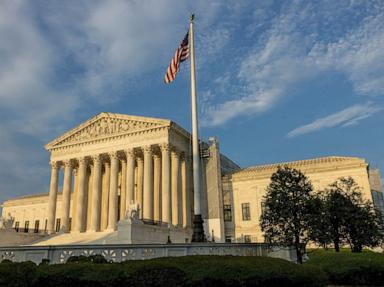URGENT UPDATE: The U.S. Supreme Court is set to make a historic ruling on the rights of Rastafarians, addressing a landmark case that could redefine religious freedom for incarcerated individuals. This unprecedented legal battle centers around Damon Landor, a self-identified Rastafarian from Louisiana, who claims his religious rights were violated when prison officials forcibly shaved his head.
The case was brought to the forefront this week as the Supreme Court justices deliberated on whether inmates can seek damages from prison officials for alleged violations of their religious freedoms. The decision, expected by June 2026, could have profound implications for many in the Rastafari community, who view dreadlocks as a sacred expression of their faith.
Landor, who adhered to the Nazarite Vow for nearly 20 years, was subjected to humiliation in 2023 when he was handcuffed and shaved bald at the Raymond Laborde Correctional Center. His pleas for a religious exemption were ignored, leading him to claim that the experience felt akin to being “raped.” In a statement to ABC News, Landor expressed deep pain over the incident, stating, “They knew better than to cut my hair, but they did it anyway.”
The core of the legal argument revolves around the Religious Land Use and Incarcerated Persons Act, enacted in 2000, which mandates that states accommodate inmates’ sincere religious practices unless they can demonstrate a “compelling state interest.” However, the question remains whether individuals can sue prison officials for damages when these rights are allegedly violated.
Zach Tripp, Landor’s attorney, emphasized the need for accountability, stating, “Without damages, the law has no teeth.” Meanwhile, Louisiana Attorney General Liz Murrill argues that state officials should have immunity in such cases, cautioning that imposing damages could severely impact the state budget.
Civil rights advocates highlight the urgent necessity for the Supreme Court to provide a clear avenue for reparations to victims of religious discrimination. Solomon Tafari, another Rastafarian who endured a decade of solitary confinement for refusing to cut his hair, shared his traumatic experience, emphasizing the psychological toll it took on him and the importance of faith during his darkest moments.
As the Rastafari community grapples with these challenges, many are hopeful that the Supreme Court will recognize and protect their religious practices. Ziah Ayubu, a prominent Rastafarian and reggae artist, stated, “We’re still here, we’re still working, still loving each other and living together.”
This case not only reflects the ongoing struggle for religious freedom but also illuminates a broader history of discrimination against Rastafarians. Charles Price, a Rastafarian scholar, remarked on the significance of legal recognition in achieving justice for those wronged.
With nearly 600 grievances related to various religious practices logged in federal prisons from 2017 to 2023, advocates argue that the lack of favorable outcomes demonstrates a troubling disregard for religious freedoms behind bars.
As the Supreme Court prepares to issue its ruling, the Rastafari community and its supporters await a decision that could reshape the landscape of religious rights in prisons and serve as a beacon of hope for justice and accountability. Stay tuned for updates on this developing story.
